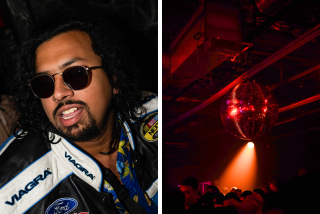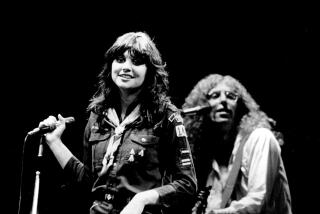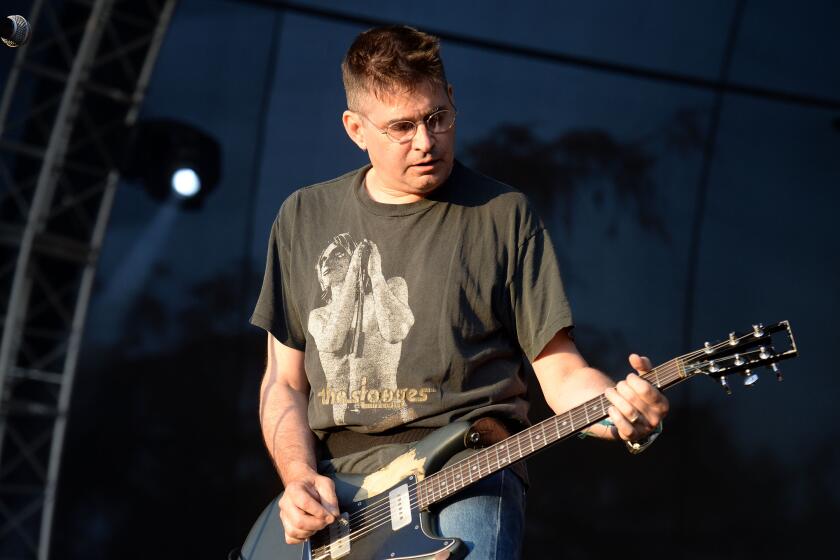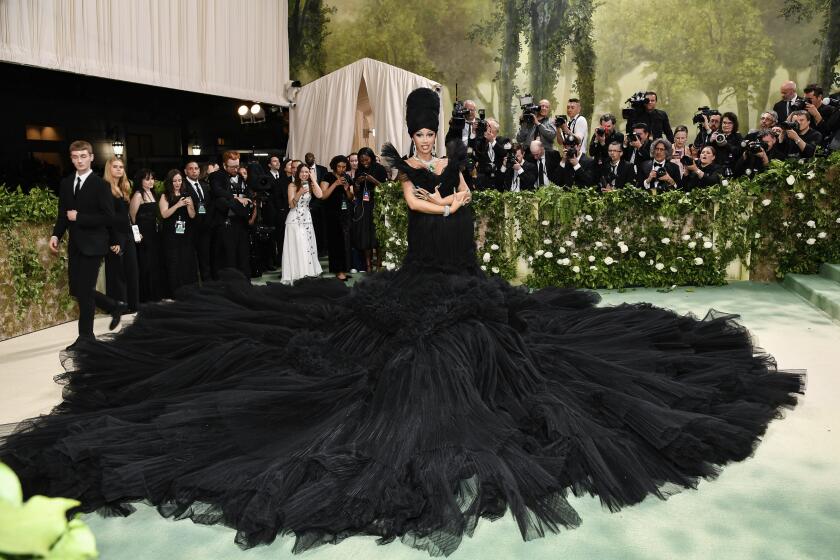52 songs, four hours, one album: How jazz trickster Sam Gendel made a pandemic opus
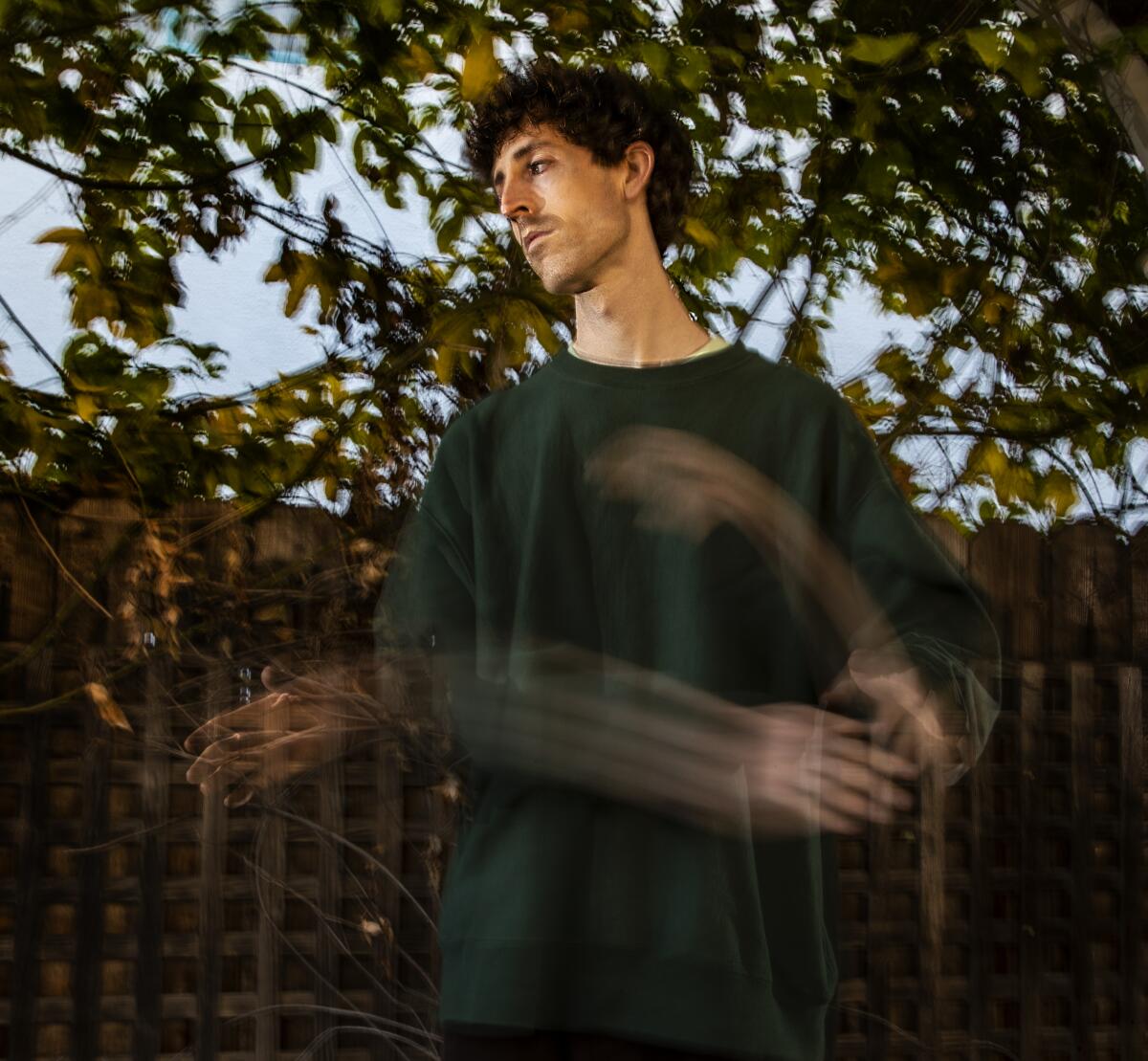
Scene: Three men are crammed into a sky-blue Toyota minivan with a bunch of musical instruments. They’re parked behind a Wienerschnitzel somewhere in L.A. Two are wearing rubber clown masks and the third, the driver, is donning a black balaclava and staring ahead with getaway-car focus.
The passenger-side clown, with a wide, crooked smile and a shock of red hair, blows hard on an alto saxophone, his long, skinny fingers maneuvering with the agility of Krusty tying balloon animals.
A drumming clown of your nightmares is in the back with a tiny kit and a few dinky keyboards. His skills too are astounding. Combined, the pair’s short, schizophrenic songs jump from genre to genre as if they’re racing through some obstacle course: from speed-metal to candlelit lounge music to horror-core to breakbeat-driven soul-funk to skronky jazz and beyond.

The YouTube clip is from a mysterious duo called Clown Core, who first appeared online in the late ‘00s, more or less vanished for nearly a decade before frantically clawing their way back from the grave a few years ago. Their creepy videos — to date there have been 38 — have earned the anonymous pair millions of views and a loyal following for their shockingly skilled musicianship and Dada-esque performance approach, whether scrunched and jamming in a porta-potty or cruising through suburbia in that van. In early March, the duo even issued a cryptocurrency called ClownCoin.
A whole subgenre of YouTube videos is devoted to Guitar Hero-playing gamers attempting to conquer Clown Core’s song “Hell,” with the experience often leaving them slack-jawed in astonishment. Other clips find seasoned musicians reacting in awe at Clown Core’s chops.

Clown Core, “Van”
With its distinctive gold neck and silver body and bell, the clown’s saxophone looks suspiciously like the horn that Santa Monica-based, long-fingered multi-instrumentalist and producer Sam Gendel, 34, has long employed when playing his mesmerizing tracks. Some people seem to think he’s involved with Clown Core.
Gendel, however, replied with confusion when asked via text if he could address the issue of his two-toned saxophone and speculation among many YouTube and Reddit commenters that he’s in Clown Core.
“Haha what is that?” The iMessage ellipses throbbed for a second before vanishing.
A few weeks earlier, Gendel was eager to talk about his new album, “Fresh Bread,” which vibes more like a sleepy monster than a van full of clowns. It runs just shy of four hours and contains 52 mostly instrumental, oft-meditative pieces that roll along casually at two- to six minutes each.
Last year, the alto sax-playing Gendel released two sublimely understated jazz records for the storied New York label Nonesuch, home to artists including Brad Mehldau, Caroline Shaw, Kronos Quartet and Steve Reich. The first, “Satin Doll,” offered cool, breathy versions of standards by Charles Mingus, Duke Ellington, Mongo Santamaria and other jazz and rhythm experts.
Hazy and with beats that are just as often hinted at as conveyed, “Satin Doll” and songs from his late summer follow-up, “DRM,” seem to wobble beneath some invisible weight.
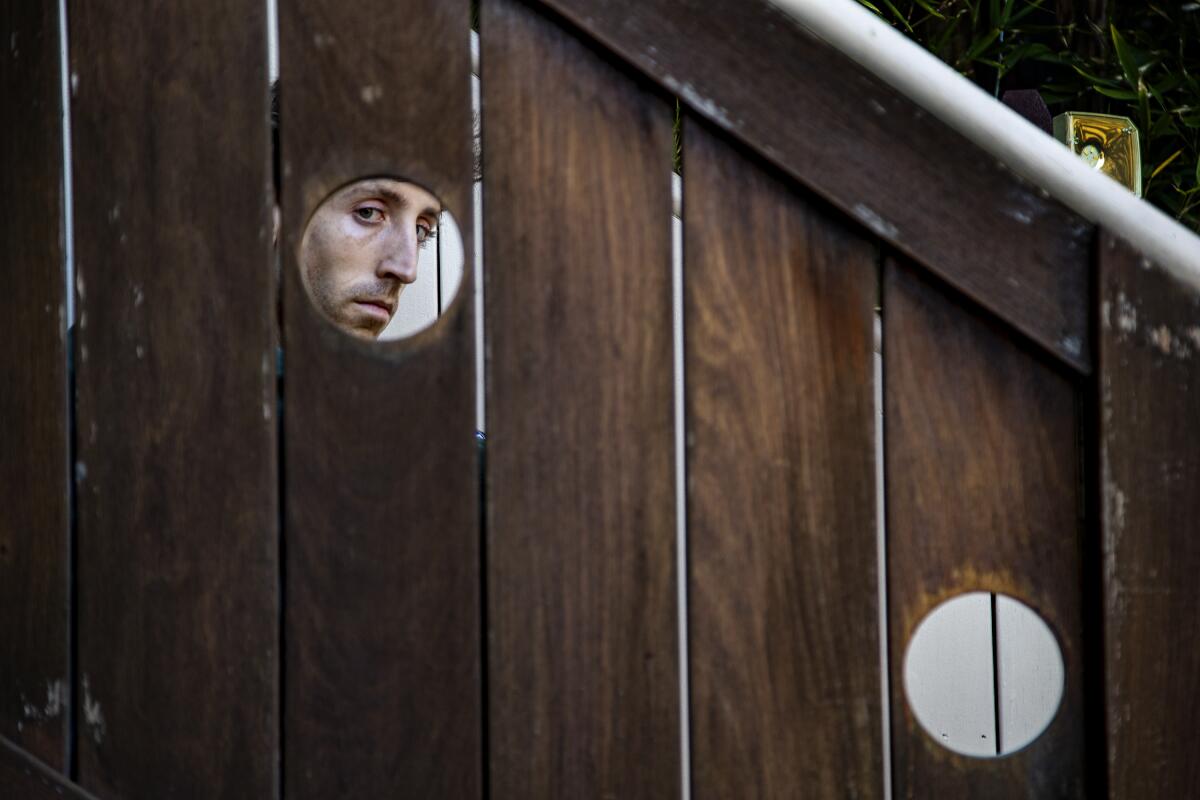
As Gendel said recently of the events that led to his Nonesuch debut: “One day out of nowhere I just get a call from the president of Nonesuch [David Bither] and he said, ‘Do you have an idea for an album?’ I did not, but I said yes.” Gendel pitched what would become “Satin Doll.”
Recalls Gendel: “They thought it was hip. And then literally the day it came out was the day that everything shut down in this country — Friday, March 13.” The pandemic laid waste to planned performances surrounding the release. “However, I am also the type of person who likes to just sit at home and not do any of that, so it was this weird blessing,” Gendel said, adding that “everyone could take in the recording on a much deeper level because they were forced into this isolation state. It ended up being really beautiful, actually.”
The artist accompanied the releases across 2020 with a string of videos that found the lanky, unselfconscious Gendel dancing and vogueing in various environments and cruising in a low rider. Check out the video to his blurry instrumental version of Lil Nas X’s “Old Town Road,” from the saxophone-free “DRM.” It seems black-out drunk.
In recent months, Gendel’s profile has risen. In February, Vampire Weekend released Gendel’s 20-minute reworking of the band’s song “2021” from its album “Father of the Bride.” “BOA,” a lovely 2018 piece that he and bassist-collaborator and label-mate Sam Wilkes co-wrote for their album, “Music for Saxofone and Bass Guitar,” scored a crucial scene in the Netflix film “Malcolm & Marie.”
Before the pandemic, he contributed to tracks by artists including Perfume Genius, Sam Amidon, Moses Sumney and Carlos Niño & Friends, and toured with Ry Cooder and Joachim Cooder. In a recent series of YouTube videos, he is featured in a trio setting with Grammy-winning musician-producer Blake Mills and bass legend Pino Palladino.
“Something I connected to right away with Sam was a sense that he was trying to surpass the limitations of his instrument,” says Mills, who in 2015 won a Grammy Award for his work on the Alabama Shakes’ “Sound and Color.” Some musicians, Mills adds, “become seduced by the sound of another instrument” and lose focus.

Sam Gendel, “Alto Voices,” directed by Marcella Cytrynowicz
Others, like Gendel, “attempt to interpret that sound through an instrument that they’ve mastered, and I think Sam has transcended the sound of the sax,” Mills says. “He’s decided to use it to paint with colors that are just outside of the palette of the instrument.”
For Gendel, the frantic pace of his output dictates his approach to releasing music. For example, it made sense to issue “Fresh Bread” through the experimental electronic Highland Park label Leaving Records. The more cohesive, focused Nonesuch records are of another sort, as is his work with collaborators Sam Wilkes, the duo Knower and others.
Gendel grew up in the San Joaquin Valley farming community of Visalia, which is located near the foot of Sequoia National Park, and after high school moved south to attend USC. Though not a music major, he fell in with a bunch of players who were.
One of them was Louis Cole, who is precisely as skilled a drummer as the anonymous clown-percussionist in Clown Core. Best known for Knower, his duo with partner Genevieve Artadi, three years ago Cole released his solo album on Flying Lotus’ Brainfeeder label.
Both Gendel and bassist Wilkes have toured Europe and America with Knower and the lot of them, along with other USC-connected musicians, have worked on each others’ projects and appear in each others’ videos. They’re inspired, well-imagined clips that one could argue stylistically resemble Clown Core videos.
Over the past 15 years, Gendel has built a reputation for his adaptability to whatever the environment requires.
“You know, it’s all angles — just so many angles,” Gendel says. “I got with Nonesuch because I imagined there’s a particular angle to what I do that resonates with that community.” Label staff, he continues, “has been very cool about letting me expand in the ways I need to because of the volume of output — and just the fact that I touch on so many different colors.”

Gendel’s “Fresh Bread” is a vast, endlessly fascinating project that not only underscores his skill on virtually any instrument he picks up but also outlines the sheer volume of melodic and structural ideas he can generate.
Quiet-storm beat music? A bunch of groggy J Dilla-inspired rhythms? Satie-suggestive aural wallpaper? Music for pinky-dancing to the minimal mambo? Lounge music that slithered through some wormhole from another dimension?
Those wondering how listeners might best experience such an overwhelmingly long album should note that, when asked, Gendel assumes a wryly academic tone and replies: “I expect people to sit down and listen to it on their hi-fi system uninterrupted, with no bathroom breaks.” With furrow-browed irony, he characterizes the 3-hour-and-45-minutes-long collection as “a really important statement about our society.”
In reality, Gendel designed the 52-song opus to be experienced way more casually. He selected what he called “random bits” that he “thought were strange and interesting.” He adds, “They didn’t correlate to anything, but then I put it all together in a big pile and I really admired the pile.”
He hopes that “Fresh Bread” will be received as “one big randomized piece, in a cool way. You can put it on shuffle and tap into it and you don’t know where you’re going to go. It’s almost like giving the computer a chance to interact with the human beings.
“I mean, it’s a playlist in a weird way, but coming from one brain. So it kind of all relates, but it also doesn’t.”
The work was born of necessity. Faced with a year’s worth of canceled dates in support of his two Nonesuch records, Gendel eased into a ritual, calling the recordings “something I had to do every day just to maintain my sanity. I didn’t know what else to do.”
He continued, “It’s just me at home by myself and doing what I do, which is experimenting with sound and then moving on to the next thing after I decide I’m done. It’s a weird process. I just make so much music. It’s crazy.”
More to Read
The biggest entertainment stories
Get our big stories about Hollywood, film, television, music, arts, culture and more right in your inbox as soon as they publish.
You may occasionally receive promotional content from the Los Angeles Times.

